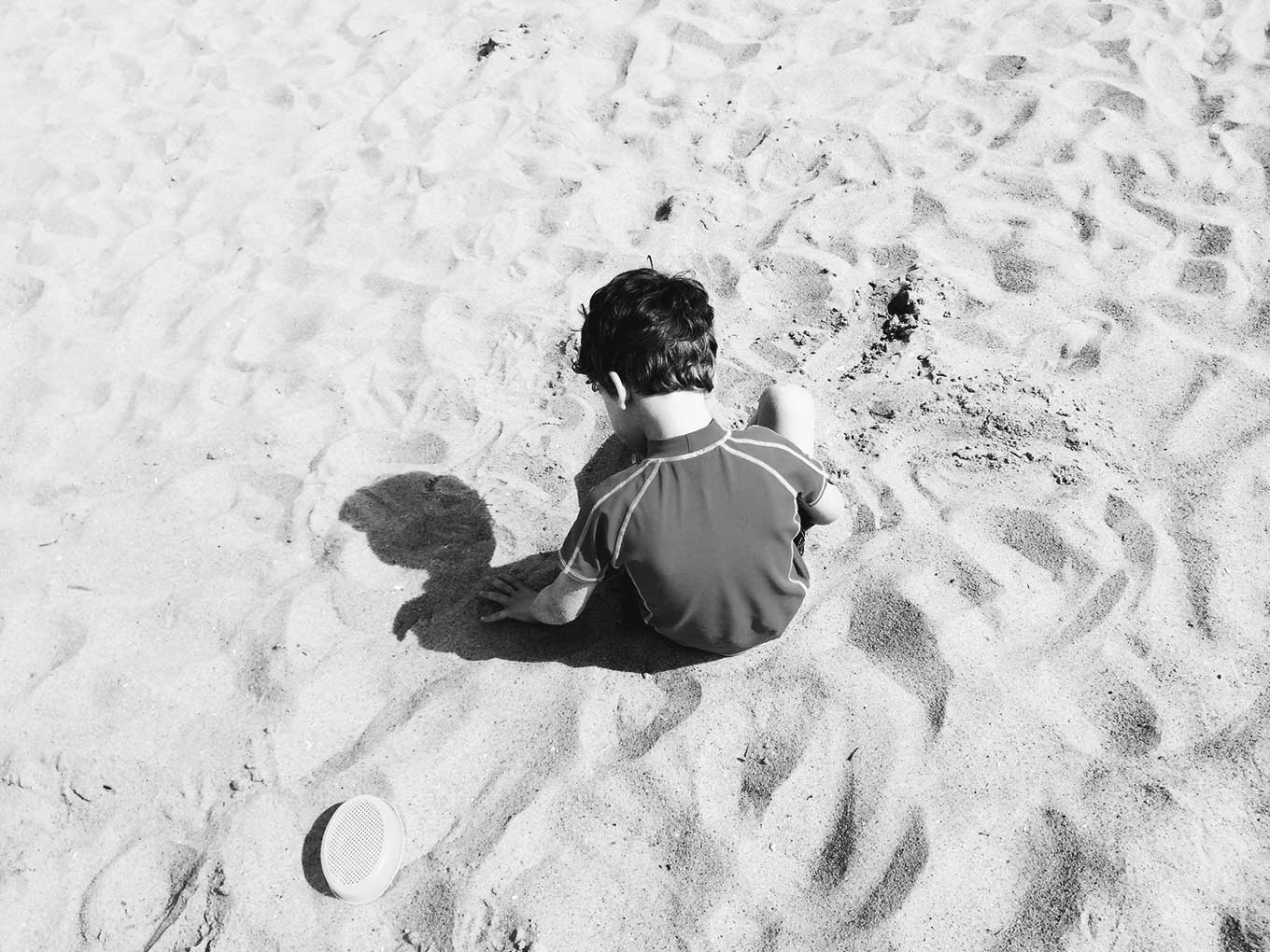 The thing I want most this Father's Day won't come from anyone but me: I'd like to be the dad I am on my best days (and in my better moments), not the one I am on my worst.
The thing I want most this Father's Day won't come from anyone but me: I'd like to be the dad I am on my best days (and in my better moments), not the one I am on my worst.
Whose journey is this?

I started writing this blog to give something back.
When C was first diagnosed with autism, I wanted to learn as much as I could. A big part of my research included reading ASD parent blogs, some of which were so helpful that, after a while, I felt I might like to share what I was learning, too.
Over time, however, I was reading fewer parent blogs and more blogs written by people with autism. As my son is still young, hearing from older people with autism was revelatory and inspiring.
And so lately I've been wondering, whose journey is this, anyway?
As someone who now follows autism closely — including the political, social, scientific, financial, and philosophical perspectives — I feel the focus is still mostly on us parents and what we go through, and not enough on the people who actually have autism.
Or, as Tommy Christopher recently put it, "Autism is not about you, Jenny McCarthy, Joe Scarborough, Autism Speaks, autism parents, and shitty reporters. It’s not about how hard your lives are, or what saints you are for not murdering them, or what bogus science you’re spreading. It is about the children with autism, and the adults that they become. If you love someone with autism, if you care at all about them, you need to fix yourselves. A good place to start would be to listen to them."
I'll continue to share my experiences as a parent, some of which are difficult. But as I write about this journey, I want to be careful to make it clear that this is not a tragedy, and we are not victims. Yes, the system is broken. Yes, there are challenges, just as there are challenges in any life. Yes, I have fears and frustrations.
But mostly I'm happy because my son is awesome, and on a daily basis I consider myself damn lucky to be his dad.
...
I started writing this blog to give something back.
I wanted to help parents just as I'd been helped by others. That hasn't changed. But what I've come to realize, and what I hope to share with others, is the perspective that what matters most isn't us parents, but our children...our children who will become teenagers and then adults.
This is their journey, and we're just along for the ride.
Autism: What we know, and don't know yet
This is an informative TED talk on the latest understanding of autism from a scientific perspective. I tend to agree with Dr. Chung that autism is likely a catch-all phrase for what we may someday discover to be various neurological conditions.
Failing C
 Our son C has what’s sometimes referred to (non-scientifically) as a "scattered neurology" (high intellect, severe behavior / social deficits), the upshot of which is that it’s incredibly hard to find an appropriate educational setting for him.
Our son C has what’s sometimes referred to (non-scientifically) as a "scattered neurology" (high intellect, severe behavior / social deficits), the upshot of which is that it’s incredibly hard to find an appropriate educational setting for him.
So hard, in fact, that the DOE told us they don’t have a spot for him, and have recommended some schools that might. The problem is that some of these schools are up to two hours away, or don't focus on C's particular type of autism.
Add to that the fact that we’ve already been rejected by some schools who say they cannot support C’s unique neurology, and we’ve been feeling pretty down.
Then, one school appeared like an oasis in the desert, a school that could engage C intellectually while helping with his behaviors, a school that created a program focused specifically on children with the same form of autism, a loving school with dedicated staff.
Since C's been in a somewhat inappropriate educational setting for almost two years — one that does’t focus on autism, let alone children with a scattered neurology — it felt like we’d finally had a stroke of luck.
Last Friday the bad news came: we have one week to come up with a huge deposit to secure a spot in this amazing school. This is the kind of deposit that would ruin us financially; given all our past medical and therapy bills, we’re already at the breaking point.
Certainly we can seek reimbursement from the the DOE since they don't have an appropriate spot for C, but that’s risky: we could have our request denied by the DOE and end up owing the entire sum, plus legal fees. In any case, some future arbitration won't help us come up with the required deposit this week.
And now we're scrambling: how do we find a school for our son before September? Do we bankrupt ourselves, cash out our paltry 401K? Do we move someplace (where?) with the hope that they have better public services? Do we put our son into a completely inappropriate educational setting for yet another year?
And so we feel the system has failed our son, yet again. Perhaps more to the point, however: we feel we’ve failed our son...yet again.
And this is a truly awful feeling.
…
Postscript: people sometimes ask how hard it is to live with autism. My answer: in our particular case, it’s not autism that makes life unbearable, it's the system and support services (insurance, schools, etc.) that do.
The Implications of Jake's Story
I’ve been meaning to write about Jacob Barnett for some time now. Actually, I've really been meaning to write about the way the media tell Jake's story. If you’re unfamiliar with Jake, he's a child (now teenage) prodigy with Aspergers. In fact, he's the rarest kind of prodigy, one whose IQ is thought to be greater than Einstein's. As if being a genius isn't enough, Jake has already done extraordinary things in his young life, and many think he will ultimately be a Nobel Prize recipient.
Jake is also a favorite topic of the media who like to use his story to remind us, in the most heartwarming and inspirational tones, of the hidden potential in everyone, and in particular people with autism.*
Last month, for example, another story about Jake appeared in my various feeds, and was forwarded to me by well-meaning friends, the implication being, I guess: "See what your son might accomplish if you believe!" The article describes how Jake's mother Kristine Barnett “...totally disregarded what experts said about her son and threw off the label that was slapped on him as a toddler. Instead, she followed her own instincts – with astounding results.”
The article — like so many others — implies that Kristine's belief in her son's potential, her willingness to buck the advice of experts, and her subsequent actions on behalf of Jake, were crucial to unlocking her son’s hidden potential.
This theme — that faith in hidden potential and action based on that faith will overcome any adversity — is common in our culture; it permeates everything from popular movies to daytime TV, self-help books to articles just like the one referenced above.
And each time I encounter a story like this about Jake — or another budding genius with autism — I experience a mix of emotions.
On the one hand, Jake's story gives me hope. It makes me realize that what we're doing — eschewing labels, presuming competence, and generally believing in and encouraging our son in his interests (and obsessions) — will lead to surprising and wondrous results. It already has. Jake’s story, framed this way, also reminds me that autism is just a label, helpful for identifying areas where help is needed, but that the label is not my son, and that C's potential is far greater than his diagnosis might suggest.
On the other hand, Jake's story, framed like this, frustrates me.
It frustrates me because of the insinuation that Jake's remarkable qualities are due primarily to his parents’ faith and support. Don’t get me wrong: I think Jake's parents deserve all the credit in the world for not only believing in their son, but for doing everything possible to encourage his passions and ignite his intellect. At the same time, I'm convinced Jake is truly a remarkable, one-in-a-million boy, and would have been so regardless of his parents.
The frustrating — and, frankly, insulting — corollary of this framing of Jake's story is that parents whose children don't reach the same heights must not have enough faith, or simply aren’t doing enough of the right things to unlock their child’s hidden potential. On this implication, I call BS: two of the most common characteristics among the autism parents I’ve met is their unwavering faith in their child’s potential, and the extraordinary amount of energy (and everything else) they expend trying to help their children be all they can.
This framing of Jake's story also implies that unconditional love and support are the key ingredients for success, and ignores the many costly, time-consuming, exhausting therapies, educational plans (IEPs), and support services autism parents pursue doggedly every single day of their lives.
Further, this narrative implies to the uninitiated (and even some of the initiated) that everyone with autism has a savant locked inside, just waiting to emerge when exposed to the faith, support, and unconditional love of devoted parents. In fact, shouldn't people with autism be allowed to be as average as the rest of us? Why is the bar for success 'genius' and not simply reaching one's full potential, whatever that may be?
None of this is to say that I think any less of Jake or his parents, or what they've accomplished. They are truly remarkable people and are to be applauded for their advocacy. Their story does, in fact, highlight the need to presume competence and engage children with autism on their own terms.
Instead, the bone I'm picking is with the facile nature of Jake's story as reported by the media who casually gloss over the fact that genius — yes, even among those with autism — is as rare as a red diamond. I realize the storyline is tantalizing — unconditional love could lead to a Nobel Prize — but this narrative is far from complete, and carries with it some fairly noxious insinuations.
As the saying goes, “If you’ve met one person with autism, you’ve met one person with autism.” Jake occupies a truly unique point on the spectrum, but it is just that: a point. Not everyone with autism can be Jake, and not everyone with autism should be Jake. If a child with autism doesn’t reach the same heights, it’s not because of a lack of love and support from her parents. It’s because that child is not — and never should be — Jacob Barnett. And that's okay.
---
* The latest version of the DSM (V) retired subcategories of ASD like Aspergers and PDD-NOS, so people like Jake — who were formerly identified as having Aspergers — are now identified clinically as simply having autism. While I generally agree with the motives and rationale for removing subcategories, I also have concerns that the conflation of various types of autism may cause confusion and misunderstanding.
